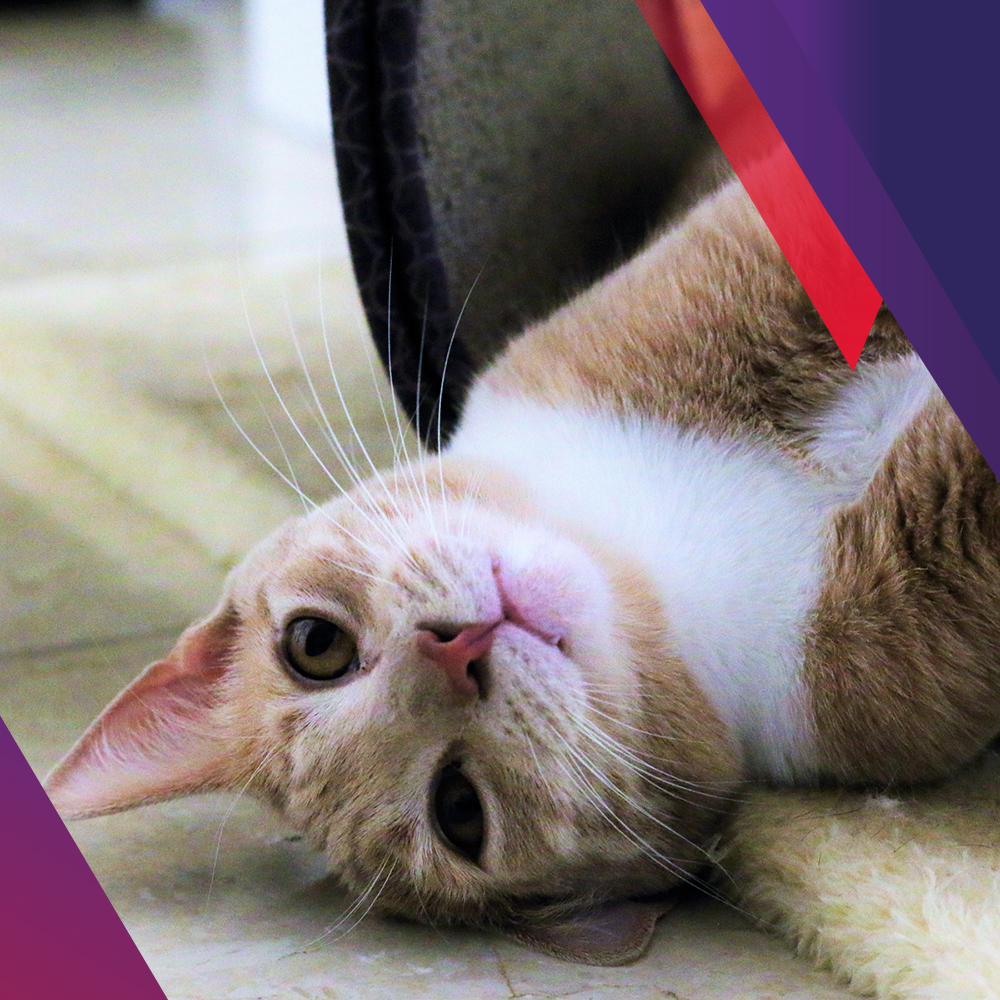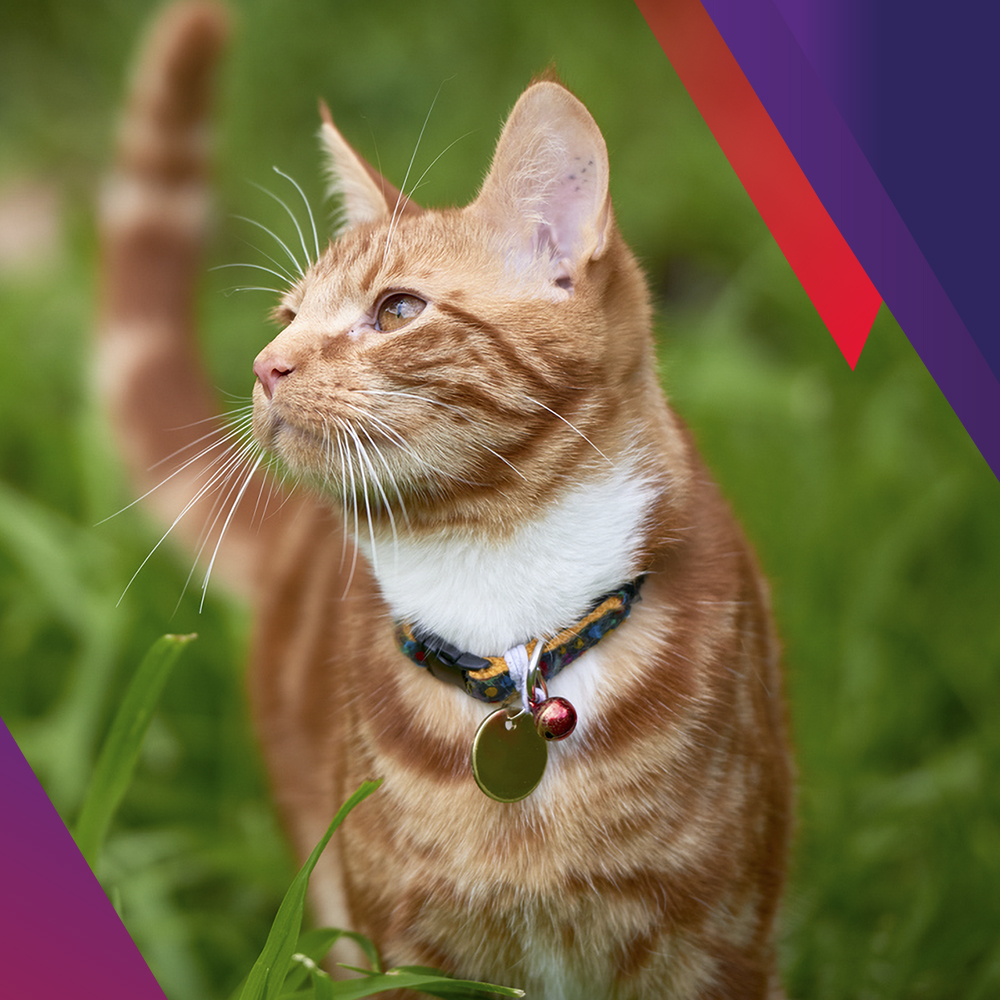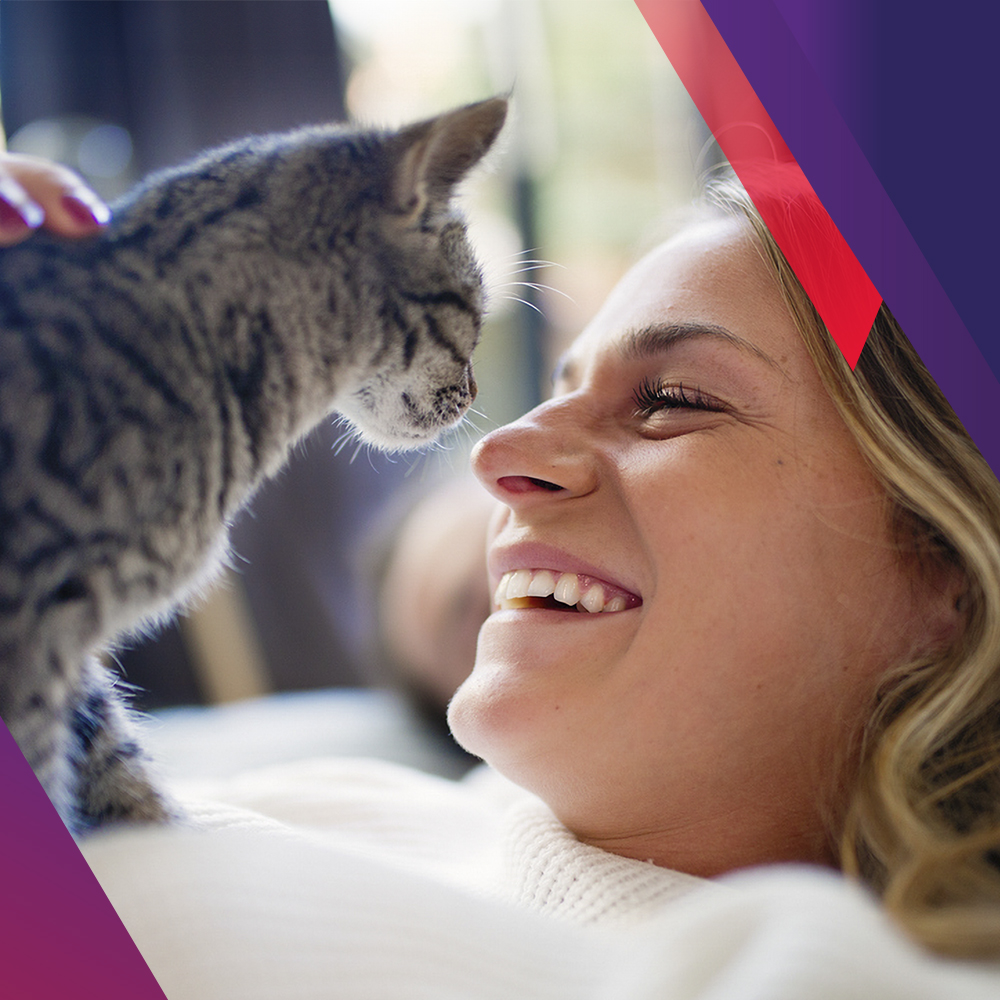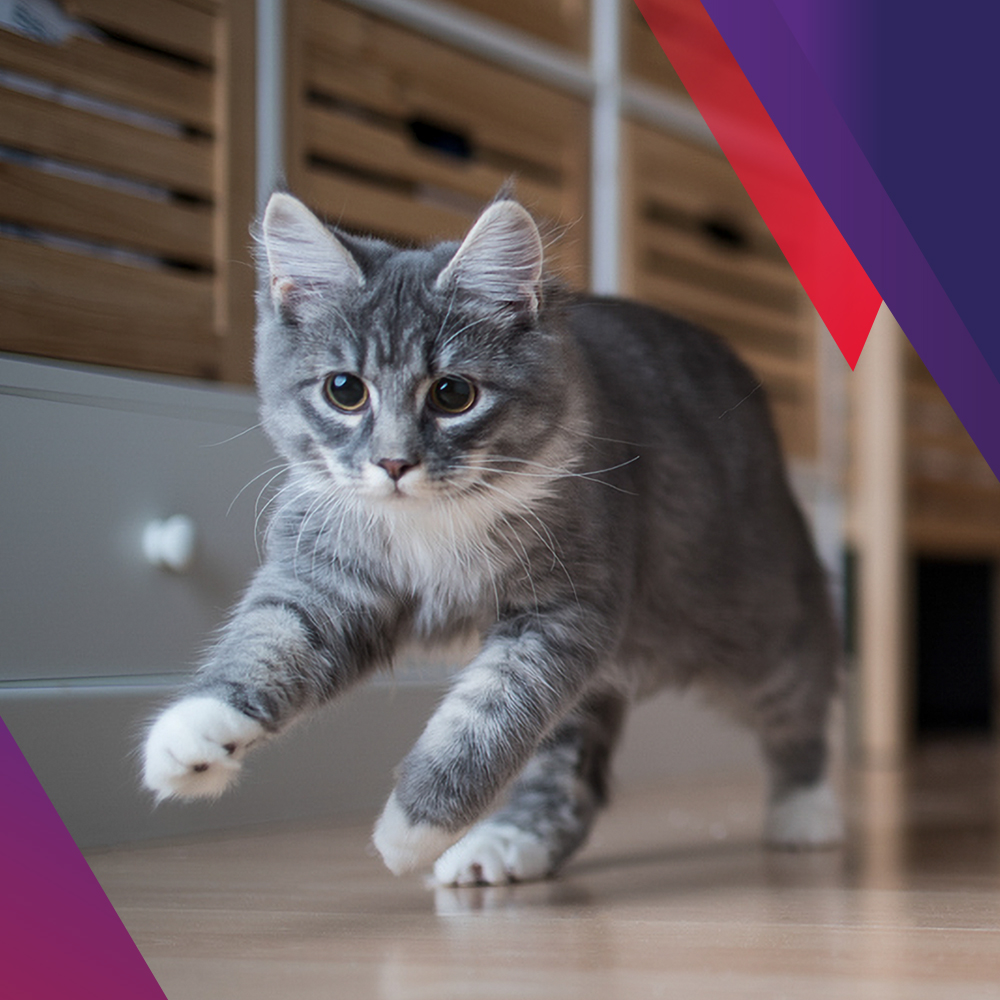
Worms
Get the inside story on worms in cats
Intestinal Worms
Cleanliness may be next to godliness, but even the most sanitary conditions won’t guarantee that your cat is protected from intestinal worms. Easily picked up from the environment, these nasty little worms make a home in your furry friend’s intestinal tract, leading to a range of health issues. Kittens and young cats are particularly vulnerable to the effects of worms, and can be unknowingly infected when nursing from their mother. Infected adult cats may not show any signs at all.


The facts about roundworm
They’re easier to pick up than you think
Cats and kittens can become infected by ingesting roundworm eggs from faeces in contaminated environments (litter trays, soil, sandpits), from eating infected animals such as rodents or from nursing from their mother.
Roundworms are difficult to spot
Once these unwanted houseguests develop into adult worms inside your cat, they can stunt growth as well as cause digestive upset, vomiting and a pot-bellied appearance.
They can be transmitted to humans
People can contract roundworm from contact with infected faeces or contaminated surfaces with children and pregnant women considered most at risk.

TIPS FOR PREVENTING INTESTINAL WORMS
Types of worms

Roundworm
These unwelcome guests are the most common parasite found within a cat. Most cats become infected at some stage, usually as a kitten or young cat. These long and cylindrically shaped squirmers can grow up to 15 cm in length, getting nutrition from food ingested by the infected cat.
lungworm
Cats that hunt and ingest prey are most at risk of developing lungworm. The adult worms residing within the lungs lay eggs that develop into larvae and migrate up the windpipe to be swallowed and excreted in the faeces.
Cats usually become reinfected by consuming birds, reptiles and rodents, where the ingested larvae then migrate back to the lungs. Cats often show no signs until there is a severe infestation, which may cause coughing, breathing difficulties and even death.
Life cycle of a gastrointestinal worm*
*Applies to roundworm
Eggs
A female adult worm deposits eggs into the intestines of the host, which are either excreted through the faeces contaminating the environment or transmitted via milk in a lactating queen.
Transmission
Transmission occurs upon ingestion of larvated eggs from a contaminated environment, ingestion of larvae in tissues of hosts such as rodents or from an infected lactating mother to kitten.
Maturation
The ingested larvae migrate into the lungs and liver. After a few weeks the larvae reach the the intestines and develop into adult worms. The lifecycle is completed with eggs being laid and excreted into the environment.
The risks of leaving your cat untreated
Often playing the role of quiet house guests within a host, intestinal worms can be hard to spot. Keep a watchful eye out for tell-tale signs and contact your local vet at the first sign of any symptoms:
- Ill-thrift, weight loss or diarrhoea
- Dull coat or poor body condition
- Pot-bellied appearance or decreased appetite
- Vomiting or lethargy
- Coughing or breathing difficulties
To ensure the ongoing health and happiness of your cat, the simplest and easiest way to treat against intestinal worms is a regular 3 monthly treatment of BRAVECTO Plus for Cats.

BRAVECTO QUANTUM requires vet authorisation, ACVM no: A011993. BRAVECTO ACVM No’s: A011019, A011261 & A011446.



